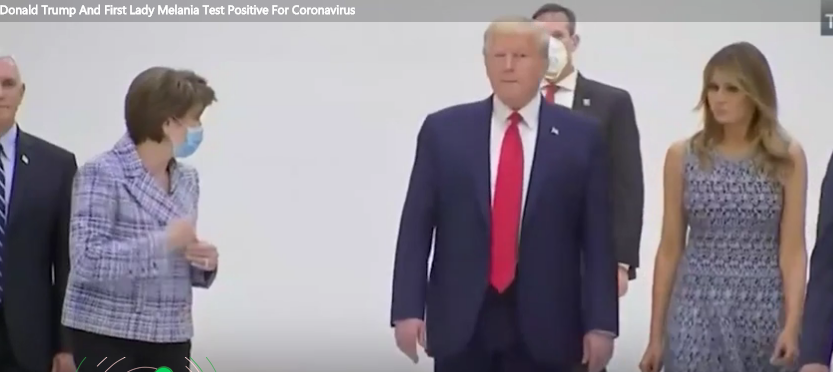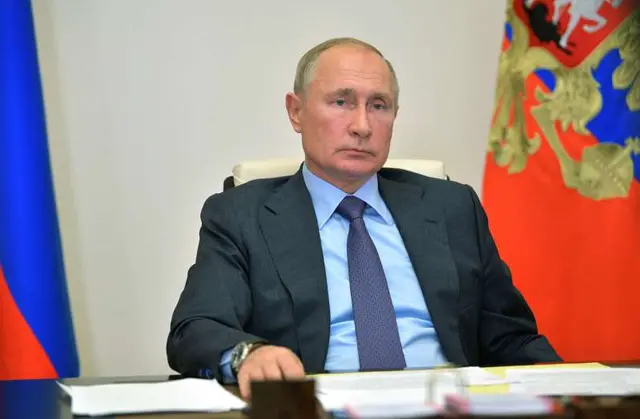Russian President Vladimir Putin has sent a get-well-soon telegram to President Donald Trump after the latter revealed that he and first lady Melania Trump have tested positive for coronavirus.

The telegram, sent Friday morning, said Putin was hoping for a fast recovery for his American counterpart. The strongman leader expressed confidence that Trump would recover, praising his "innate stamina, high spirits, and optimism" that will "help you cope with this deadly virus."
Putin is among a raft of world leaders sending their best wishes to the president, who said on Twitter he and Melania "will begin our quarantine and recovery process immediately. We will get through this TOGETHER!"
Putin's get-well-soon telegram bore a striking similarity to that sent to British Prime Minister Boris Johnson when he fell ill with coronavirus in March. The 56-year-old PM had to be admitted to intensive care and given oxygen before eventually recovering.
"I would like to express my sincere support in this trying time," Putin wrote to Johnson. "I am certain that your energy, optimism and sense of humor will help you to defeat the illness...I sincerely wish you fast and complete recovery."
All communication between Trump and Putin is closely watched by analysts, journalists and foreign nations. Russia has loomed over Trump throughout his presidential campaign and time in office, with allegations over improper ties with the Kremlin during Trump's push to win the White House and since.
Trump has regularly dismissed any reports of impropriety as "fake news" and a "witch hunt" by the "deep state" to undermine his administration. He has repeatedly lauded Putin as a strong leader and even sided with the veteran leader over his own intelligence agencies on the issue of Russian meddling.
In August, the Republican-lead Senate Intelligence Committee published a report almost 1,000 pages in length detailing extensive contacts between Trump campaign advisers and Kremlin officials, including at least one intelligence officer and others linked to Moscow's intelligence agencies.
The report concluded—in line with previous conclusions by Congress and U.S. intelligence—that Moscow sought to influence the 2016 election in favor of Trump and that Trump campaign figures were open to accepting the help.
But like special counsel Robert Mueller's report into Russian meddling, the committee did not say that the Trump campaign had actively colluded or coordinated with the Kremlin to help Trump win the election.
Trump has repeatedly cited the Mueller report—something he regularly attacked while the investigation was ongoing—as proof there was "no collusion" with Moscow.
(MSN)
 简体中文
简体中文

